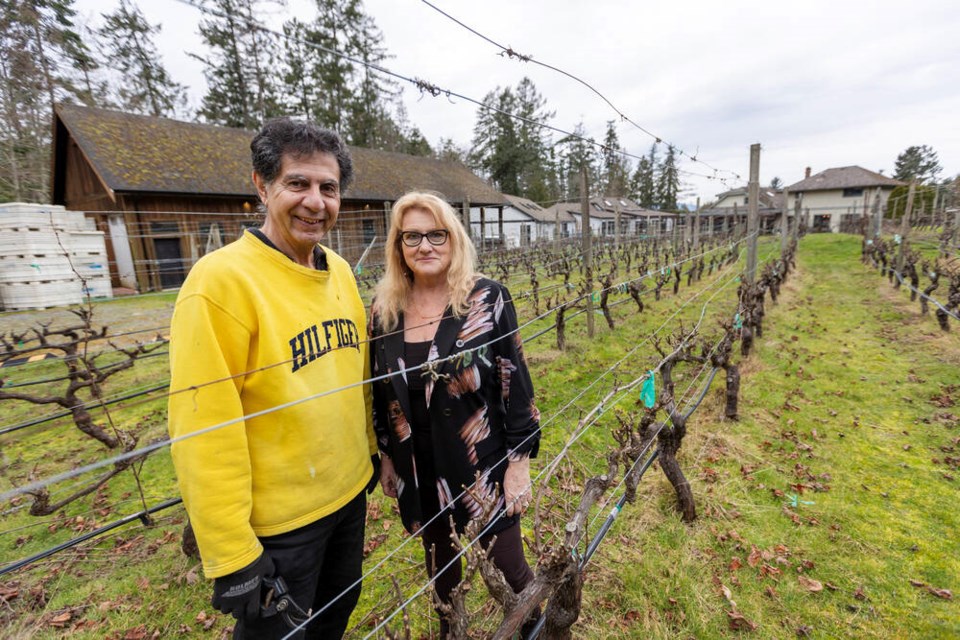Vancouver Island wineries say they have not been affected by the adverse winter that is expected to wipe out most of the 2024 B.C. wine vintage.
Wine grape production in the province this year is expected to be only one to three per cent of typical yields, according to a report into the January cold snap commissioned by industry group Wine Growers British Columbia.
On the Saanich Peninsula, Deep Cove Winery co-owner Diana Sayad said she expects this year’s harvest to go off without a hitch. “We’re in the midst of pruning right now and they’re all fine and budding nicely.”
The winery’s three acres is expected to produce the usual 10 tons of grapes. But this year Sayad said she is treating her vineyard with kid gloves.
Okanagan Valley growers have found their crops decimated by the cold. The valley contains the vast majority of B.C.’s vineyard acreage — some 86 per cent by the wine industry’s estimate. Kelowna’s daily low temperature breached -20 C in mid-January and did not return above -10 C until Jan. 20.
The owner of one vineyard in West Kelowna was lighting burn barrels in -25 C weather last month in an attempt to protect his crop.
Some of Deep Cove Winery’s red wines use Okanagan grapes and one supplier has already called to say they won’t be able to fulfil orders this year, Sayad said. “We have a lot that can keep us going, but not as much variety.”
Wine Growers B.C. estimates the cost of replanting an acre of vineyard at $42,360 on average. Most vines need three years before they can start producing wine-ready grapes.
Brenda Hetman-Craig, who co-owns the 24-acre 40 Knots Winery in Comox, said she feels devastated for Okanagan-area wineries and their employees.
“Okanagan is very important in the wine industry,” she said. “They’ve broken ground for Canadian wine being known internationally.”
Hetman-Craig is concerned how the Okanagan wine grape crop failure will change the B.C. wine market, especially if international exports dwindle.
“The big ones that are selling internationally are supporting the industry,” she said. “If you’re not able to provide that, it affects the entire market.”
Hetman-Craig said she isn’t worried about the cold damaging wine grape crops on Vancouver Island. “Even crop insurance says it’s unlikely.”
It would have to be -7 C during springtime after vinebuds started bursting for cold damage to occur, she said. “Our vines, they’re very robust and the roots are 20 feet deep.”
While some may see a market opportunity from this year’s Okanagan Valley crop yield troubles, Hetman-Craig said she believes that the wine industry is better when there are more wineries in the mix. “We’ve always believed in collaboration, not competition.”
Wine Growers B.C. says Vancouver Island has approximately 321 acres of vineyards, of which 175 are in the Cowichan Valley.
The industry group is forecasting up to $346 million in lost revenue for vineyards and wineries in B.C. this year, with another $99 million in revenue losses for industry-adjacent suppliers, logistic providers, and distributors.
— With files from Castanet and The Canadian Press



